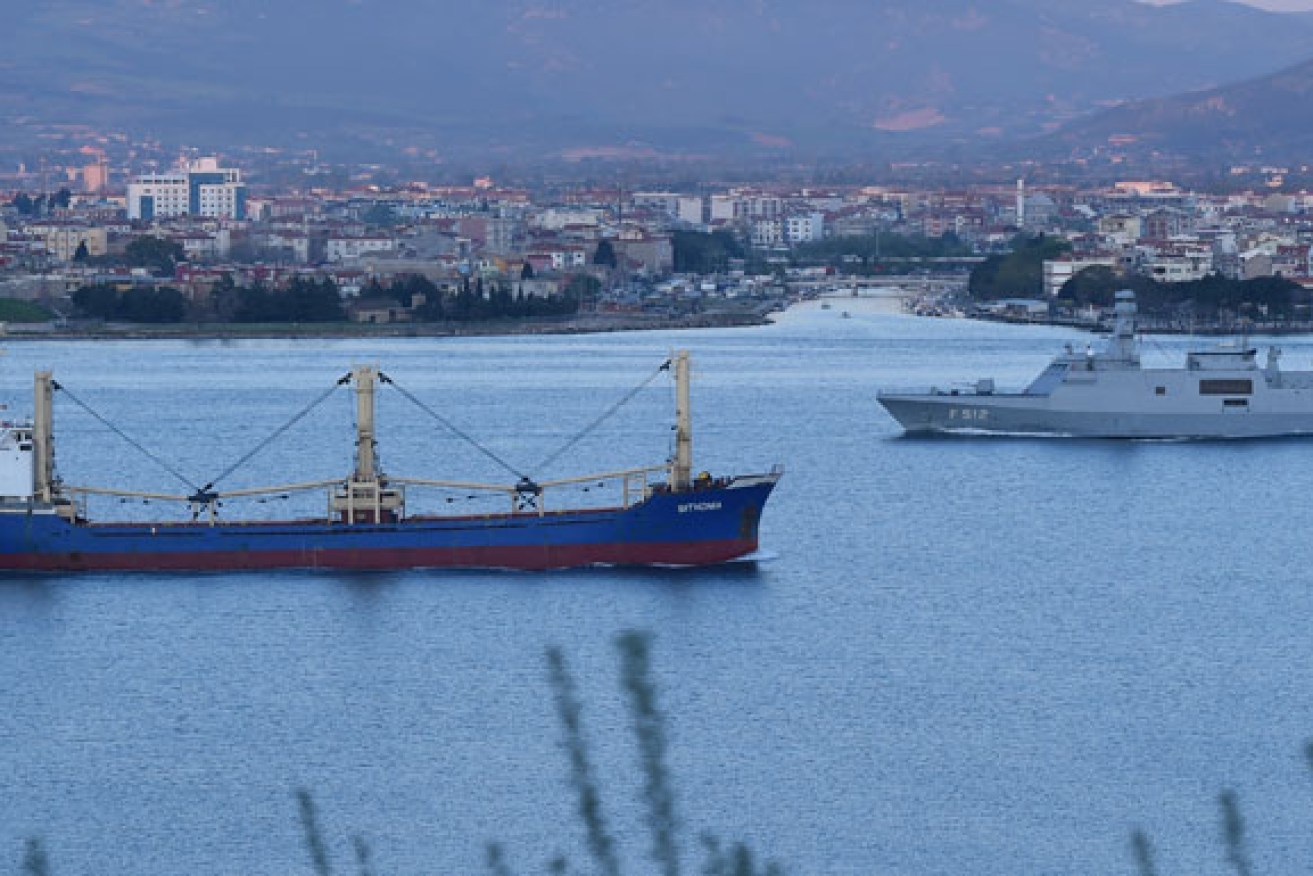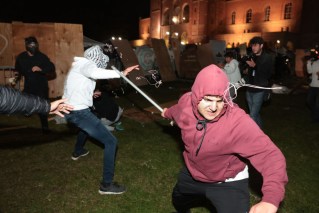Gallipoli story told with fundamentalist twist


AAP/Dean Lewins
Tourism to the battlefield of Gallipoli has increased to become an economic focus of the area, but guides showing Australians around Anzac Cove are being coaxed to add a religious slant to the story, according to reports.
The Australian has claimed that the Government of Recep Tayyip Erdogan, who is softer on Islamism than its predecessor, is “paying” tour guides to change the story of the battle to reflect a clash of religions.
Quoting an Australian official who was not identified, The Australian reported the “emergence of a new view of Turkish history and of the Gallipoli campaign that was much more infused by a fundamentalist view of the world”.
• Anzac Day public holiday: ‘It’s not too late’
• Terror plot ‘involved running over police, shooting rampage’
• Botched ANZAC ad agency ‘goes into hiding’
“This interpretation saw the ultimate victory as being a reflection in faith of the one true god rather than a campaign driven by a gifted strategist and leader of men in Ataturk,” the official said.
Mustafa Kemal Ataturk was Turkey’s wartime commander who became the country’s leader, credited with creating the modern secular Turkey after the fall of the Ottoman Empire.
About 5000 Turkish police and army personnel will be charged with securing the dawn service at Anzac Cove for the 8200 attendees, including Prime Minister Tony Abbott, and British royals Prince Charles and Prince Harry.

Turkish navy on the Dardanelles to protect those due at Anzac Cove. Photo: AAP
A higher-than-expected crowd of up to 10,000 is expected at separate services held near Anzac Cove in the town of Gallipoli since arrangements to broadcast it were cancelled, AAP reports.
Attendees will pass through six security checkpoints.
“It’s pretty mind-boggling to see what’s happened in the past two years, it’s absolutely hectic,” said Mark Sims, an Australian Vineyard consultant who lives in Turkey and spoke to ABC’s AM.
He said locals were switching from agricultural work to attending to tourist, selling drinks and keychains, magnets and T-shirts.
“Accessing workers for agriculture, as in physical labour, is non-existent now,” he said.
Many more Turkish people are taking tourists around the site where about 8000 Australians died in a 1915 beach landing as part of World War One.
The Gallipoli landing began a bloody eight month battle, which also claimed 220,000 Turkish soldiers and 120,000 British, Fairfax reported.
It has been commemorated in annual marches, films and statues ever since and become part of Australia’s national identity.
But the site is also popular for Turkish tourists, who come to see the site of a great victory for the Turkish forces, who repelled a flotilla of allied warships attempting to block the Dardanelles on March 18, before the Gallipoli landing.








